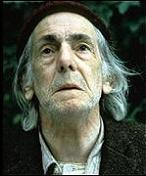|
|
||||||||||||||||||||||||
 |
Featured person
Recently added |
Brian Crossagh O'Neill ( - 1615): |
||||||||||||||||||||||
Brian Crossagh O’Neill was involved in the 1615 “Natives’” rebellion against the Ulster Plantation, which, though ill-planned, barely armed and apparently unlikely to succeed, was nevertheless thwarted by the government, principally under the direction of Sir Arthur Chichester.
Brian Crossagh O’Neill was an illegitimate cousin of the earl of Tyrone, who as a “deserving” native had been granted a one-thousand-acre “proportion” of land near Dungannon, County Tyrone, in 1611, though a claim he made to sixteen townlands at Loughinsholin was rejected. The plot was first mooted by a group of “native” Irish who met one evening in May, 1614, in an alehouse at Macosquin, just a few miles south-west of Coleraine. The plan was to attack and seize several principal towns: Coleraine, Londonderry, Lifford, Culmore, Limavady and Carrickfergus. Crossagh O’Neill was not present at the meeting, but the plotters sent a letter to both him and Art Óg MacDonnell O’Neill requesting that they attack other locations including Charlemont, where the Earl of Tyrone’s son Conn O’Neill was incarcerated.
In June 1615, at the third session of the Irish Parliament in Dublin, the Lord Deputy, Sir Arthur Chichester, announced that he had foiled a plot against the government, that the Privy Council in London had been informed and that the plotters had been apprehended. This had been aided by information obtained under torture from Cú Chonnacht Ó Cianáin.
Contemporary opinion was rather divided as to the seriousness of the plot. Sir Robert Jacob, Solicitor-General, was not inclined to alarm; Chichester on the other hand, pointed out that there had for some months been a high level of murders of planters. There was also the shadow of the Earl of Tyrone, whom many thought could imminently invade Ireland with Spanish army troops (some Irish); he certainly wished to and was constantly pressing King Philip III of Spain to this end for aid. But the Spanish king, and the Pope, were anxious not to provoke London, not least as they were hoping to have the Spanish Infanta married to the British King James’s son Charles (this proposed marriage deal was known as the “Spanish Match”, was organised in part by the clever Spanish envoy to London, Gondomar, and immortalised in drama by Thomas Middleton in his play A Game at Chess).
Among modern historians, one theory is that Chichester, whatever he saw as real dangers, made use of the plot to force through the Parliament a request for more money from the London government, pleading that the threat to security in the province fully justified this.
In late July, seventeen plotters were tried before the two assize judges for County Londonderry and a jury which included two native Irish. Eleven were acquitted for lack of evidence; six were convicted, and sentenced to be dragged through the streets of the city, then hanged, drawn and quartered. Crossagh O’Neill was one of these (and Cú Chonnacht Ó Cianáin another). O’Neill’s sentence was carried out soon after being passed. His lands were forfeit to the Crown, and passed in June 1616 to Francis Edgeworth. Brian’s younger brother, Con, had nothing to do with the plot but nevertheless left Ireland for mainland Europe where he presented himself to Albert, Archduke of Austria and Governor of the Spanish Netherlands, who wrote to the Spanish king that the English had tried to imprison him; he eventually joined the Irish regiment of his relative, Captain Charles O’Neill.
| Born: | |
| Died: | 1615 |
| Richard Froggatt |
| Bibliography: Raymond Gillespie: Conspiracy: Ulster Plots and Plotters in 1615; Belfast, Institute of Irish Studies, Ulster Association for Irish Historical Studies, 1987; Jonathan Bardon: The Plantation of Ulster, Dublin 2011 |


Home | Our Policies | Plaques | Browse | Search | Sponsors | Links | Help | Contact
Privacy & Disclaimer | Cookie Policy | Site Map | Website Design By K-Point
© 2024 Ulster History Circle









